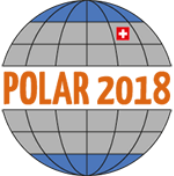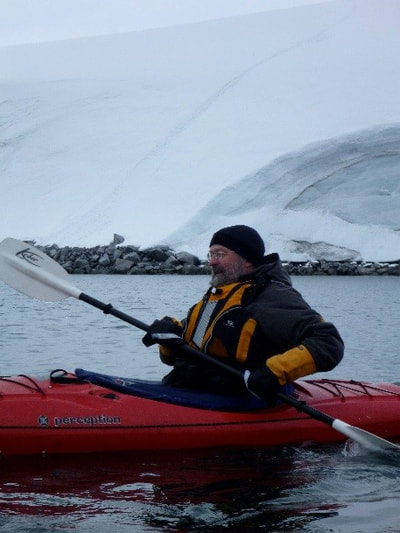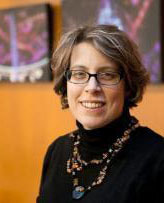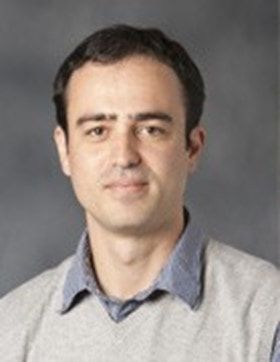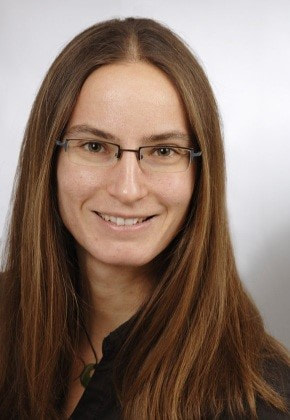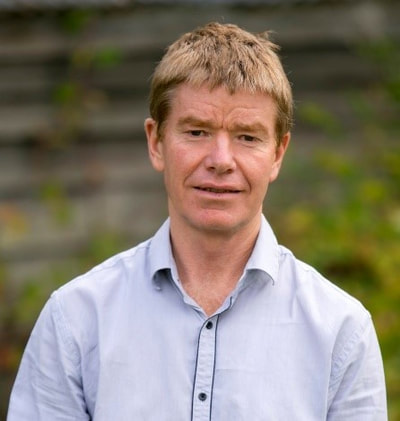Mini-Symposium III
Antarctic Circumnavigation Expedition ACE
Friday, 22 June 2018
2pm - 3.30pm
Organized by David Walton
The Antarctic Circumnavigation Expedition was a unique attempt to address a range of globally significant questions in the Southern Ocean and Antarctica in a single cruise, for the first time attempting to link the islands with the wider oceanographic context. Undertaken by an international group of 150 scientists working on 22 projects a principal objective is to foster cross-disciplinary working and data sharing. Future expeditions organised through the Swiss Polar Institute SPI are expected to address questions around North Greenland and the links between the Arctic islands and the Arctic Ocean.
Speakers and presentations
David Walton (Swiss Polar Institute, Lausanne, Switzerland) - ACE and some key questions for the Southern Ocean and Antarctica
Christel Hassler (University of Geneva, Geneva, Switzerland) - Providing a circum-Antarctic baseline for oceanic change
Nicolas Cassar (Duke University, Durham, North Carolina, USA) - Biological Carbon Sink in the Southern Ocean: Estimates from satellites to the sea bed.
Elizabeth Thomas (British Antarctic Survey, Cambridge,UK) - Reconstructing climate and wind strength in ice, peat and sediments
Julia Schmale (Paul Scherrer Institute, Villigen, Switzerland) - Air-sea interactions - linking atmospheric dynamics, aerosols and ocean biogeochemistry.
Steven Chown (Monash University, Melbourne, Victoria, Australia) - Biodiversity, biogeography and evolution on land and in the sea.
And a summary by David Walton
Abstracts for these presentations will be become available in the online program and in the electronic abstract proceedings.
Antarctic Circumnavigation Expedition ACE
Friday, 22 June 2018
2pm - 3.30pm
Organized by David Walton
The Antarctic Circumnavigation Expedition was a unique attempt to address a range of globally significant questions in the Southern Ocean and Antarctica in a single cruise, for the first time attempting to link the islands with the wider oceanographic context. Undertaken by an international group of 150 scientists working on 22 projects a principal objective is to foster cross-disciplinary working and data sharing. Future expeditions organised through the Swiss Polar Institute SPI are expected to address questions around North Greenland and the links between the Arctic islands and the Arctic Ocean.
Speakers and presentations
David Walton (Swiss Polar Institute, Lausanne, Switzerland) - ACE and some key questions for the Southern Ocean and Antarctica
Christel Hassler (University of Geneva, Geneva, Switzerland) - Providing a circum-Antarctic baseline for oceanic change
Nicolas Cassar (Duke University, Durham, North Carolina, USA) - Biological Carbon Sink in the Southern Ocean: Estimates from satellites to the sea bed.
Elizabeth Thomas (British Antarctic Survey, Cambridge,UK) - Reconstructing climate and wind strength in ice, peat and sediments
Julia Schmale (Paul Scherrer Institute, Villigen, Switzerland) - Air-sea interactions - linking atmospheric dynamics, aerosols and ocean biogeochemistry.
Steven Chown (Monash University, Melbourne, Victoria, Australia) - Biodiversity, biogeography and evolution on land and in the sea.
And a summary by David Walton
Abstracts for these presentations will be become available in the online program and in the electronic abstract proceedings.
David Walton was an ecologist working for British Antarctic Survey for 40 years in a variety of roles including heading two science divisions. He has been Editor in Chief of the journal Antarctic Science for the past 30 years. He was closely involved in the initial preparations for ACE and Chief Scientist for the ACE voyage.
Christel Hassler is a biogeochemist at the University of Geneva, Switzerland. Her research interests focus on the role of trace elements in the regulation of microorganisms and associated carbon pumps. Her research tend also to shed light on the feedback that microorganisms and their interactions exert on marine biogeochemistry. Hassler is a Swiss representative in the SCAR Life Sciences Working Group and is PI and co-PI for the ACE projects “Biodiversity and isolation of bacteria and viruses in contrasted regions of the Southern Ocean” and “Tracing the iron cycles in Southern Ocean waters”, respectively.
Elizabeth Thomas is a palaeoclimatologist and head of the ice core group at the British Antarctic Survey. She uses stable water isotopes and geochemistry from ice cores to reconstruct past climate, surface mass balance and sea ice variability in the Polar Regions over centennial to millennial time scales. She has led a number of ice core drilling projects in Antarctica and is PI for the ACE SUBICE (Sub-Antarctic Ice Core Drilling Expedition) project.
Julia Schmale is an atmospheric scientist at the Paul Scherrer Institute, Switzerland. Her research focuses on atmospheric fine particulate matter and its climate effects in extreme environments, particularly in the Arctic and Antarctic. Julia has been active at the science-policy interface for several years: she represents Switzerland in the International Arctic Science Committee Atmosphere Working Group and is a member of the Arctic Monitoring and Assessment Programme Expert Group on short-lived climate-forcing pollutants. Within ACE, Julia leads the “Study of Preindustrial-like-aerosol climate effects” (SPACE) and the “Antarctic Sea-Atmosphere Interactions Data project” (ASAID).
Nicolas Cassar is biogeochemist at Duke University (USA) and an international chair of excellence (LabexMER) at the European Institute of Marine Studies (France). He uses a variety of tools and satellite and field observations to understand the fluxes of carbon, oxygen and nitrogen between the oceans and the atmosphere. Cassar is lead PI on the ACE project “Phytoplankton as a climate regulator”.
Steven Chown is a biologist at Monash University, Australia, investigating biodiversity variation and its underlying causes. He was Head of the School of Biological Sciences at Monash (2013-2017), and prior to that inaugural director the South African Centre of Excellence for Invasion Biology at Stellenbosch University (2004-2012). He is currently President of SCAR. Steven leads the ACE - A Functional Biogeography of the Antarctic (AFBA) Project.
Christel Hassler is a biogeochemist at the University of Geneva, Switzerland. Her research interests focus on the role of trace elements in the regulation of microorganisms and associated carbon pumps. Her research tend also to shed light on the feedback that microorganisms and their interactions exert on marine biogeochemistry. Hassler is a Swiss representative in the SCAR Life Sciences Working Group and is PI and co-PI for the ACE projects “Biodiversity and isolation of bacteria and viruses in contrasted regions of the Southern Ocean” and “Tracing the iron cycles in Southern Ocean waters”, respectively.
Elizabeth Thomas is a palaeoclimatologist and head of the ice core group at the British Antarctic Survey. She uses stable water isotopes and geochemistry from ice cores to reconstruct past climate, surface mass balance and sea ice variability in the Polar Regions over centennial to millennial time scales. She has led a number of ice core drilling projects in Antarctica and is PI for the ACE SUBICE (Sub-Antarctic Ice Core Drilling Expedition) project.
Julia Schmale is an atmospheric scientist at the Paul Scherrer Institute, Switzerland. Her research focuses on atmospheric fine particulate matter and its climate effects in extreme environments, particularly in the Arctic and Antarctic. Julia has been active at the science-policy interface for several years: she represents Switzerland in the International Arctic Science Committee Atmosphere Working Group and is a member of the Arctic Monitoring and Assessment Programme Expert Group on short-lived climate-forcing pollutants. Within ACE, Julia leads the “Study of Preindustrial-like-aerosol climate effects” (SPACE) and the “Antarctic Sea-Atmosphere Interactions Data project” (ASAID).
Nicolas Cassar is biogeochemist at Duke University (USA) and an international chair of excellence (LabexMER) at the European Institute of Marine Studies (France). He uses a variety of tools and satellite and field observations to understand the fluxes of carbon, oxygen and nitrogen between the oceans and the atmosphere. Cassar is lead PI on the ACE project “Phytoplankton as a climate regulator”.
Steven Chown is a biologist at Monash University, Australia, investigating biodiversity variation and its underlying causes. He was Head of the School of Biological Sciences at Monash (2013-2017), and prior to that inaugural director the South African Centre of Excellence for Invasion Biology at Stellenbosch University (2004-2012). He is currently President of SCAR. Steven leads the ACE - A Functional Biogeography of the Antarctic (AFBA) Project.
